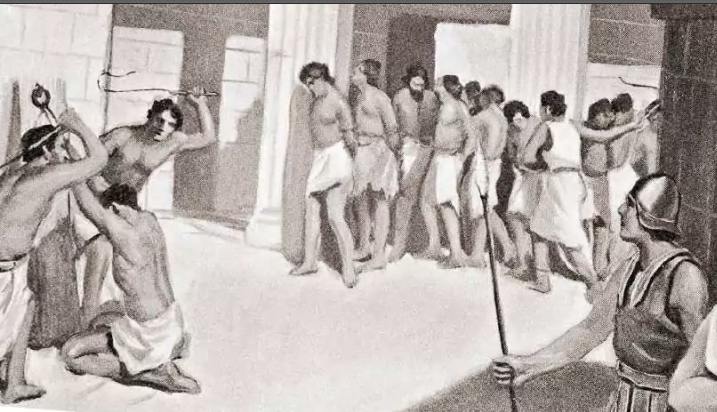In the world of ancient Greece, a cradle of philosophy and democracy, a dark reality existed for a huge portion of the population: slavery. Far from being a minor institution, it was integral to society, with slaves performing the tasks citizens found undesirable. But what was it truly like to be considered ‘property that breathes’, as the philosopher Aristotle once put it?
Table of Contents
⛓️ The Many Paths to Servitude
How did one become a slave in ancient Greece? Many were foreigners captured in wars, their lives forfeit to the victors. Others were born into servitude, inheriting their parents’ status. In some cases, even Greek citizens could fall into debt enslavement if they couldn’t pay what they owed to a landowner. In fifth-century BC Athens, it’s estimated there were 60,000-80,000 slaves, with the average household owning three or four.
🏛️ A Life of Labor
The work of a slave was varied but almost always grueling. The most common role was in agriculture, but many were forced into the brutal conditions of quarries and mines. Domestic slaves arguably had less physically demanding lives, sometimes accompanying their masters on travels or even acting as confidantes. There were also public slaves, owned by the state, who might work as clerks or on road construction. Regardless of the job, all slaves were denied civic rights and had no say in politics.
Sparta’s Helots: A Special Case
In Sparta, the situation was unique. The helots were a subjugated group collectively owned by the state. Outnumbering the Spartans seven to one, they were a constant source of fear for their masters. To maintain control, the Spartans subjected them to brutal treatment, including an annual, ritualistic beating “regardless of any wrongdoing, so that they never forgot they were slaves.” Each autumn, Sparta would formally declare war on the helots, allowing them to be killed without religious consequence. This institutionalized terror highlights the harsh reality underpinning even the most advanced ancient societies.
Bibliography:
BBC History Specials: Ancient World, 2025. Immediate Media Company London Limited, 2024.
- Curses: The History of the Evil Eye and Binding Magic
- Magical Plants: A Witch’s Garden of Herbs and Poisons
- Roman Magic: Curses, the Strix, and Everyday Protection
- Circe: The Greek Sorceress of Transformation and Myth
- Greek Magic: Hecate’s Power, Oracles, and Enchantresses
- Japanese Magic: Yōkai, Onmyōdō, and Supernatural Folklore
- Empress Chen Jiao: The Royal Scandal of Witchcraft in Han China
